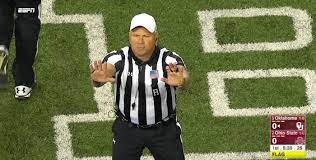
An employee who is fired during FMLA leave may be able to make an FMLA interference claim. An interference claim gives an employee a chance to legally contest their termination without having to prove the employer’s motive. FMLA interference claims also shift important burdens of proof to the employer.
One reason why employment law cases are so difficult for employees is that typically they have the burden to prove that they were fired or otherwise discriminated against for an unlawful reason.
Employers of course almost always deny illegal motivations and there is an entire “industry” – HR — devoted to helping companies cover their tracks on a termination.
But while an FMLA interference claim may not be easy for employees, employees have a more level playing field in an FMLA interference claim than they do in a typical employment law case.
What is FMLA interference?
In an FMLA interference claim, so long as an employee is eligible for FMLA, it is unlawful for them to be fired by their employer if the reason is connected to them taking leave. The employee doesn’t need to prove anything about employer motivation.
Secondly, once the employee shows they are eligible for FMLA, then the employer has the burden to show the termination was unconnected with them taking FMLA leave.
In fact, an employer need not even terminate an employee to be liable for FMLA interference. Counting FMLA protected leave as unexcused absences can constitute FMLA interference.
Interference v. retaliation
Cases involving suspected misconduct by an employee out on FMLA can show the difference between a retaliation and interference claim. An employee suspected of misconduct by their can still survive a motion to dismiss if they can show part of the reason they were terminated went to them taking FMLA. For example, maybe they were fired for attendance issues and some attendance points were wrongly deducted.
In contrast, an allegation of employee misconduct can give an employer an honest or good faith reason to fire an employee. That good faith reason is often enough to get a retaliation case dismissed even if the suspected employee misconduct turns out not to be true.
Another common pitfall in any kind of retaliation case is that the person who made the decision to terminate an employee, may not have notice that an employee engaged in a protected activity. This is especially true in FMLA cases where companies outsource FMLA leave administration. Again, an interference claim dispenses with that issue for an employee.
How employers defend FMLA interference claims
There are two pitfalls to an FMLA interference case for an employee. One are they eligible for FMLA leave for either for their own serious health condition or take care of a family member with a serious health condition. In order to be eligible an employer needs 50 employees within a 75 mile radius and employee needs to employed for year and to have worked 1250 hours. Employees are also eligible for FMLA to take care of a newborn or adopted child or take care of family member who is a veteran with a service-connected medical condition as defined by law.
Secondly, employers can also show that they would have fired the employee regardless of their FMLA claim. Employers don’t like this standard because it places the burden of them at summary judgment to show almost beyond a reasonable doubt that they fired the employee for reasons not connected with them taking FMLA. If an employer meets their burden it’s going to be on a no-call, no-show type termination or for clear misconduct by an employee.
Employers can also defeat FMLA interference claims with proof the employee’s job would have been eliminated in a mass layoff or in a plant closure. (Employees may have a WARN Act claim in such a case)
Easier burden, but smaller damages?
At least in the states like Nebraska and other states within the 8th Circuit Court of Appeals, there are no compensatory (mental distress) damages available for violations of the FMLA like there are in a Title VII and in cases under the Nebraska Fair Employment Practices Act. FMLA cases also lack punitive damages.
But employee can still receive attorney fees and back pay for FMLA cases. Additionally employers need to prove why an employee is not entitled to a liquidated damage equal to back pay if a jury finds they interfered with an employee’s FMLA rights. Plaintiffs can also get front pay awarded by a judge in some circumstances.
So, yes an employee gives up some potential compensation in an FMLA case versus many types of discrimination case. But employees have a better chance of winning an FMLA interference claim than a typical discrimination case.

